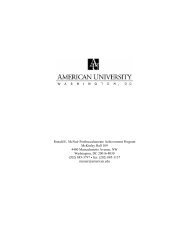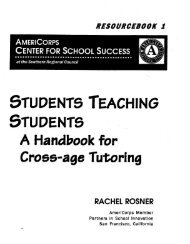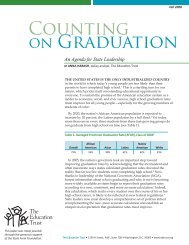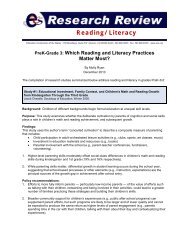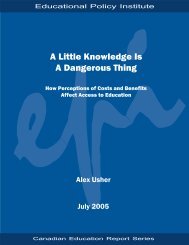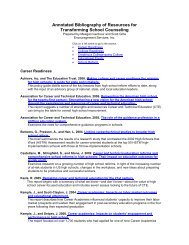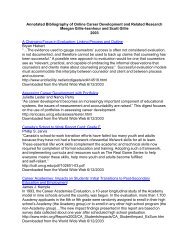Resistance Theory and the Transculturation Hypothesis
Resistance Theory and the Transculturation Hypothesis
Resistance Theory and the Transculturation Hypothesis
You also want an ePaper? Increase the reach of your titles
YUMPU automatically turns print PDFs into web optimized ePapers that Google loves.
34appropriate counseling is greatly needed. The ideal counseling situation would likelyinclude highly trained, culturally sensitive American Indian counselors. However, <strong>the</strong>reality is that <strong>the</strong>re has been, <strong>and</strong> likely remains, a shortage of competently trainedAmerican Indian professionals (Trimble & LaFromboise, 1985). Thus, cultural sensitivitymay prove to be <strong>the</strong> key to appropriate counseling. Ultimately <strong>the</strong> burden falls oninstitutions of higher learning to ensure that <strong>the</strong>y have staffed culturally competent aswell as professionally trained personnel who are perceived as legitimate resourcesamong culturally traditional American Indian students.ConclusionPersistence of American Indians continues to be a major concern in higher education.Yet, <strong>the</strong> best alternative toward realizing educational success among culturallytraditional American Indians is to strive for achievement through cultural autonomy (VanHamm, 1996). The transculturated students of this study provide evidence thatculturally traditional American Indians can achieve academically while retaining <strong>the</strong>ircultural integrity. If more favorable graduation <strong>and</strong> persistence rates are be realized, asituation in which American Indian college students perceive <strong>the</strong> freedom to expressany ethnic identity <strong>the</strong>y chose (whe<strong>the</strong>r it be traditional or assimilated) should beencouraged. Such a situation would not solve all <strong>the</strong> problems besetting AmericanIndian higher education persistence. Never<strong>the</strong>less, it would make a positive difference.Terry Huffman, Ph.D. is an associate professor of sociology at <strong>the</strong> University of NorthDakota. He received his Ph.D. from Iowa State University. Areas of research interest34




